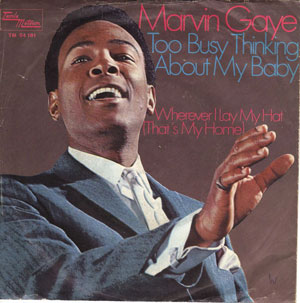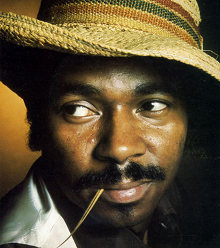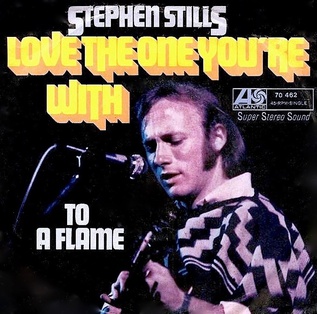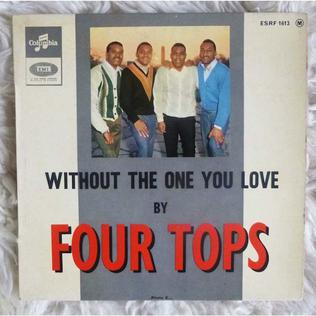
"You've Got a Friend" is a 1971 song written by American singer-songwriter Carole King. It was first recorded by King and included on her second studio album, Tapestry (1971). Another well-known version is by James Taylor from his album Mud Slide Slim and the Blue Horizon. His was released as a single in 1971, reaching number one on the Billboard Hot 100 and number four on the UK Singles Chart. The two versions were recorded simultaneously in 1971 with shared musicians.

"Whole Lotta Love" is a song by the English rock band Led Zeppelin. It is the opening track on the band's second album, Led Zeppelin II, and was released as a single in 1969 in several countries; as with other Led Zeppelin songs, no single was released in the United Kingdom. In the United States, it became their first hit and was certified gold. Parts of the song's lyrics were adapted from Willie Dixon's "You Need Love", recorded by Muddy Waters in 1962; originally uncredited to Dixon, a lawsuit in 1985 was settled with a payment to Dixon and credit on subsequent releases.

"You're All I Need to Get By" is a song recorded by the American R&B/soul duo Marvin Gaye and Tammi Terrell and released on Motown Records' Tamla label in 1968. It was the basis for the 1995 single "I'll Be There for You/You're All I Need to Get By" from Method Man and Mary J. Blige.

"Too Busy Thinking About My Baby" is a Motown song written by Norman Whitfield, Barrett Strong, and Janie Bradford. The song was first recorded by The Temptations as a track on their 1966 album Gettin' Ready. Eddie Kendricks sings lead on the recording, which was produced by Whitfield. Jimmy Ruffin also recorded a version with The Temptations providing background vocals in 1966. It remained unreleased until 1997.

Van Allen Clinton McCoy was an American record producer, arranger, songwriter and singer. He is known for his 1975 internationally successful hit "The Hustle". He has approximately 700 song copyrights to his credit, and produced songs by such recording artists as Brenda & the Tabulations, David Ruffin, The Stylistics, The Presidents, Faith, Hope & Charity, New Censation, Gladys Knight & the Pips, Aretha Franklin, Peaches & Herb, Lesley Gore, and Stacy Lattisaw.

"You've Really Got a Hold on Me" is a song written by Smokey Robinson, which became a 1962 Top 10 hit single for the Miracles. One of the Miracles' most covered tunes, this million-selling song received a 1998 Grammy Hall of Fame Award. It has also been selected as one of The Rock and Roll Hall of Fame's 500 Songs that Shaped Rock and Roll. It was recorded by the Beatles for their second album, With the Beatles (1963). Many other musicians also recorded versions.

"You've Lost That Lovin' Feelin'" is a song by Phil Spector, Barry Mann, and Cynthia Weil, first recorded in 1964 by the American vocal duo the Righteous Brothers. This version, produced by Spector, is cited by some music critics as the ultimate expression and illustration of his Wall of Sound recording technique. The record was a critical and commercial success on its release, reaching number one in early February 1965 in both the United States and the United Kingdom. The single ranked No. 5 in Billboard's year-end Top 100 of 1965 Hot 100 hits – based on combined airplay and sales, and not including three charted weeks in December 1964 – and has entered the UK Top Ten on three occasions.

"I've Been Loving You Too Long" (originally "I've Been Loving You Too Long (To Stop Now)") is a soul music ballad written by Otis Redding and Jerry Butler. Considered by music critics and writers to be one of Redding's finest performances and a soul classic, it is a slow, emotional piece with Redding's pleading vocals backed by producer Steve Cropper's arpeggiated guitar parts and a horn section.

"Heat Wave" is a 1963 song written by the Holland–Dozier–Holland songwriting team. It was first made popular by the Motown vocal group Martha and the Vandellas, who issued it as a single on July 10, 1963, on the Motown subsidiary Gordy label. The single reached number one on the Billboard Hot R&B chart—where it stayed for four weeks—and peaking at number 4 on the Billboard Hot 100.

"My Baby Loves Me" is a 1966 soul standard by Martha Reeves but released under Martha and The Vandellas. None of the Vandellas are featured in this song. Instead, the background is sung by Motown's session group, The Andantes, and another legendary Motown group, The Four Tops. Co-written and co-produced by William "Mickey" Stevenson & Ivy Jo Hunter, the song rose to #22 on Billboard Hot 100 singles chart and #3 on Billboard's Hot R&B singles chart.
"I'm Ready for Love" is a 1966 single by Motown girl group Martha and the Vandellas. The song, produced and written by Holland–Dozier–Holland, and was written in a similar style to The Supremes' smash hit, "You Can't Hurry Love".
"Love (Makes Me Do Foolish Things)" is a 1965 pop ballad by Motown girl group Martha and the Vandellas. A rare ballad for the group, whose forte was reportedly uptempo soul dance numbers including "Dancing in the Street" and "Nowhere to Run", the b-side to the group's single, "You've Been in Love Too Long", although the song only peaked at #70 on the Billboard Hot 100 singles chart and #22 on the Billboard Hot R&B singles chart. Cash Box described it as a "plaintive, slow-shufflin’ heart-throbber with a nostalgic years-back sound."

"Love the One You're With" is a song by American folk rock musician Stephen Stills. It was released as the lead single from his debut self-titled studio album in November 1970. The song, inspired by a remark Stills heard from musician Billy Preston, became his biggest hit single, peaking at No. 14 on the Billboard Hot 100 in early 1971. David Crosby and Graham Nash, Stills's fellow members of Crosby, Stills & Nash, provide background vocals on the song. Also providing the backups are Rita Coolidge, her sister Priscilla Jones, and John Sebastian. They all sing the "Do Dos" that come before the instrumental portion and the outro. The song was also recorded by the Isley Brothers, The Meters, Bucks Fizz, Luther Vandross, Bob Seger and Richard Clapton, among others.

"Love Is Like an Itching in My Heart" is a 1966 song recorded by the Supremes for the Motown label.

"(Your Love Keeps Lifting Me) Higher and Higher" is an R&B song written by Gary Jackson, Raynard Miner, and Carl Smith. It was recorded by Jackie Wilson for his album Higher and Higher (1967), produced by Carl Davis, and became a Top 10 pop and number one R&B hit.

"When the Lovelight Starts Shining Through His Eyes" is a song written by Holland–Dozier–Holland and recorded in 1963 by Motown singing group The Supremes. It is notable as the Supremes' first Billboard Hot 100 Top 40 recording, following seven previous singles between January 1961 and September 1963 which failed to enter the Top 40. The single is also notable as the first Supremes single written and produced by Holland–Dozier–Holland, who had previously created hits for Martha and the Vandellas and Mary Wells.

"Everybody's Got the Right to Love" is a socially conscious–inspired pop song written by Lou Stallman, produced by Frank Wilson and released as a single in 1970 by Motown group The Supremes, who took the song into the top forty in mid-1970 following the release of "Up the Ladder to the Roof".

"Part-Time Love" is a song written by English musician Elton John with lyrics by Gary Osborne. It is the sixth track off his 1978 album, A Single Man. It is also the opening track of side two. It proved to be one of the most popular singles the pair wrote, along with 1982's "Blue Eyes" and the 1980 US million seller "Little Jeannie". It was banned in the Soviet release of the album along with another song, "Big Dipper". The single reached No. 15 in the UK and peaked just outside the Top 20 in the US at No. 22.

"Without the One You Love (Life's Not Worth While)" is a song written by Holland–Dozier–Holland and released as a single in 1964 by the Motown singing group The Four Tops as the second single from their self-titled debut album, Four Tops. The group would later cover the song with The Supremes.

"How Sweet It Is (To Be Loved by You)" is a song recorded by American soul singer Marvin Gaye from his fifth studio album of the same name (1965). It was written in 1964 by the Motown songwriting team of Holland–Dozier–Holland, and produced by Brian Holland and Lamont Dozier. The song title was inspired by one of the actor and comedian Jackie Gleason's signature phrases, "How Sweet It Is!"

















